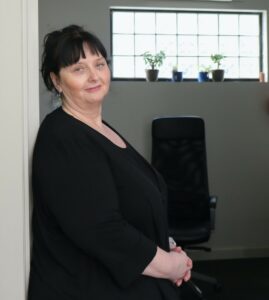
General practices provide important opportunities for people experiencing family violence to report the matter and begin the process of moving to a safe environment.
However, disclosure can be complicated by several circumstances, such as the abuser being present at a consultation. The ability of doctors and staff to recognise the importance of patient disclosure and to respond in ways that are appropriate and supportive is critical.
Nicole Cross is a senior nurse at Sunshine City Medical Centre, a busy general practice in Melbourne’s west. The centre participated in the NWMPHN Family Violence Quality Improvement Project – an initiative funded by the Australian Government Department of Health.

Importance of making a safe plan
“It’s important to make a safety plan with someone who has just disclosed that they are experiencing family violence,” Nicole says.
“Most people, when they disclose, they aren’t ready to leave home at that point, but having a safety plan done just gives them something to fall back on. It gives them a little bit of support in a time of crisis.”
As part of the project, and to build response capability at the practice, Nicole and the team attended family violence education sessions facilitated by University of Melbourne’s Safer Families Centre.
As a result, she introduced awareness and action pathways across the practice, with all staff now trained in how to respond to patients who indicate that they are in danger.
Taking a whole team approach
“Prior to the workshops, it used to only be . . . nurses and doctors – clinical staff – who were active in this area,” she says.
“But now, taking a whole team approach, we put some procedures in place so that reception staff could become involved in the identification and support process for our patients.
“Obviously patients get to know receptionists quite well and sometimes they feel quite comfortable talking with them. So, we gave them a bit of education and training, and provided them with some good resources and material to give to patients.
“If it’s a person just wanting some information, we hand them a little booklet that’s made by Women’s Health West – a non-profit organisation in Footscray – which has emergency numbers and resources and things like that in it.
“If it’s someone actually disclosing that they are experiencing family violence, our receptionists can trigger other resources, including flagging the matter with nurses and GPs – so we can have more of a discussion about safety in an environment where their abuser is not present.
“This includes arranging for the patient to be transferred to a safe place, offsite, if necessary.”
Nicole says her training resulted in other changes to practice, designed to improve responses to family violence disclosures.
A much more direct connection with local services
One example was the creation of a visual slide on the subject, shown regularly on the waiting room display screens.
“The slide started conversations, which is good,” she says, “and I think it also made people aware that they could approach any staff member at the clinic that they felt comfortable with to discuss or disclose things that were happening.”
As well as sharpening its initial responses, the medical centre has bolstered its ability to help patients by linking them in with local support services.
“Before we did the training, it was quite difficult to liaise with domestic violence workers, but now I’ve got actual people and names and I’ve had a Zoom meeting with them, and I have their email addresses. It’s a much more direct connection – we know who’s doing what in the area, and we can refer patients with confidence.”
Nicole adds that since doing the training and putting the lessons learned into practice, the practice has seen an uptick in disclosures.
“There is help and support out there,” she says. “You just need to find the right person to disclose to – someone that you trust. And once you start talking, things do seem to come into perspective and improve.”
To learn more about the role of primary care professionals and how to respond to family violence, visit the family violence for primary care page. This page includes family violence services and other resources including a short video Starting Conversation About Family Violence by Professor Kelsey Hegarty of the University of Melbourne.




